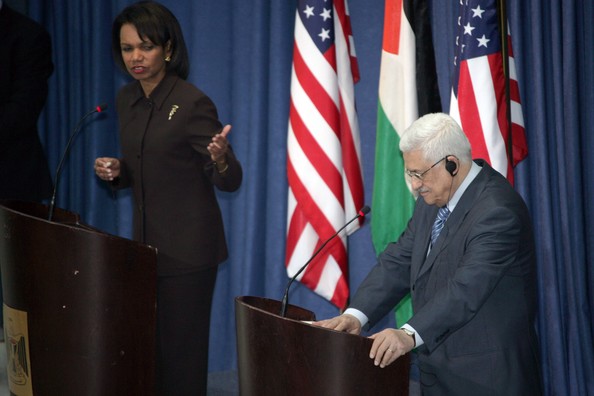UPDATES
Two victims from Palestinian UNESCO ploy: UNESCO and the US
November 1, 2011 | Daniel Meyerowitz-Katz

The admission of Palestine into the United Nations Educational, Scientific and Cultural Organisation, little more than a symbolic victory for the Palestinian Authority (PA), has severe repercussions on the largest funder of both the PA and UNESCO: The United States. As AFP has reported, US legislation prevents US funding of any UN body that admits the Palestinians as a member.
“We were to have made a $US60 million ($A57.11 million) payment to UNESCO in November and we will not be making that payment,” State Department spokeswoman Victoria Nuland told reporters on Monday.
Nuland said the Palestinian admission “triggers longstanding (US) legislative restrictions which will compel the United States to refrain from making contributions to UNESCO.”
The United States, Israel’s top ally, in the 1990s banned the financing of any UN organisation that accepts Palestine as a full member. The United States provides about 22 per cent of the UNESCO annual budget.
The withdrawal of US funding will deal a serious blow to UNESCO’s operating budget and to the US’s influence in the body. Moreover, US State department is worried that this may be replicated in other UN bodies.
State Department and other US officials met business leaders on Monday to warn them that Palestinian membership in the World Intellectual Property Organisation could hurt US leadership in the group, the State Department said.
They noted that the organisation helps US firms protect their intellectual property rights worldwide, it said.
The PA is playing a risky game. Whatever symbolic benefit they are gaining from being admitted to various UN organs is likely offset by effectively snubbing their noses at their strongest ally and single largest funder. The PA are already struggling to secure donations and the Arab states have a recent record of pledging but not delivering, whereas the US even donated hundreds of millions of dollars last year to bail them out during a financially insecure period.
It is doubtful that the PA could survive without US support, and yet it is the US that is worse affected by the current activities. It would be very wise for Abbas to rather heed the US’s call for a return to negotiations in the hope of reaching a peace agreement. That said, his current strategy could be explained by a revelation contained in the soon to be released memoir of former US Secretary of State Condoleezza Rice.
The relevant information is contained in Rice’s account of the intense negotiations between Israel and the Palestinians that she was facilitating in 2008. As reported byThe Jerusalem Post‘s Rebecca Anna Stoil, then Israeli Prime Minister Ehud Olmert was set on making a deal and had offered sweeping concessions of unprecedented proportions, so much so that PA President Mahmoud Abbas had to resort to creative stalling tactics in order to avoid making an agreement.
Rice recounted how on September 16, 2008 Olmert presented Abbas with a groundbreaking offer for a two-state solution including a map outlining the territory of a Palestinian state. Rice confirmed reports that Olmert insisted that Abbas sign then and there, but that Abbas “demurred, wanting to consult his experts before signing.”
… Abbas asked for a meeting the next day with his advisers present.
The meeting the next day was never held – Rice did not say why, but Olmert has since said that he received a call from Saeb Erekat requesting that the meeting be postponed.
The US administration seems to have been unaware that in preparation for the September 16 meeting the PA was trying to generate escape plans from reaching a binding agreement with Olmert, while at the same time avoiding being blamed for not reaching a final status agreement.
“SE [PA Negotiator Saeb Erekat] thinks there are three ways [Abbas] could respond: (1) Give [Olmert] our Framework Agreement on Permanent Status, (2) Issue general communique about Annapolis progress, (3) Simply say no to the offer,” one September 9, 2008 memo from Hala Rasheed read.“He wants us to think up other ways to respond. Whatever we propose, he wants to make sure that: (a) we are not blamed, (b) [negotiations] are uninterrupted, and (c) no submission is made that we cannot retract.”
A memo to other NSU members dated September 16 from Wassim Khazmo, a communications adviser on the PA negotiating team, revealed that Palestinians intended to treat the September 16 meeting as “ceremonial” rather than directed toward advancing negotiations and possibly reaching a peace agreement.
It seems that the change in administration provided Abbas with the excuse that he needed to back away from negotiations without agreeing to a deal. This could potentially provide an explanation as to why he is currently sabotaging his US support and any hope of a peace agreement in the near future. Doing so may serve his interests, but it is hardly beneficial to the people he supposedly represents.
Daniel Meyerowitz-Katz
Tags: Palestinians





